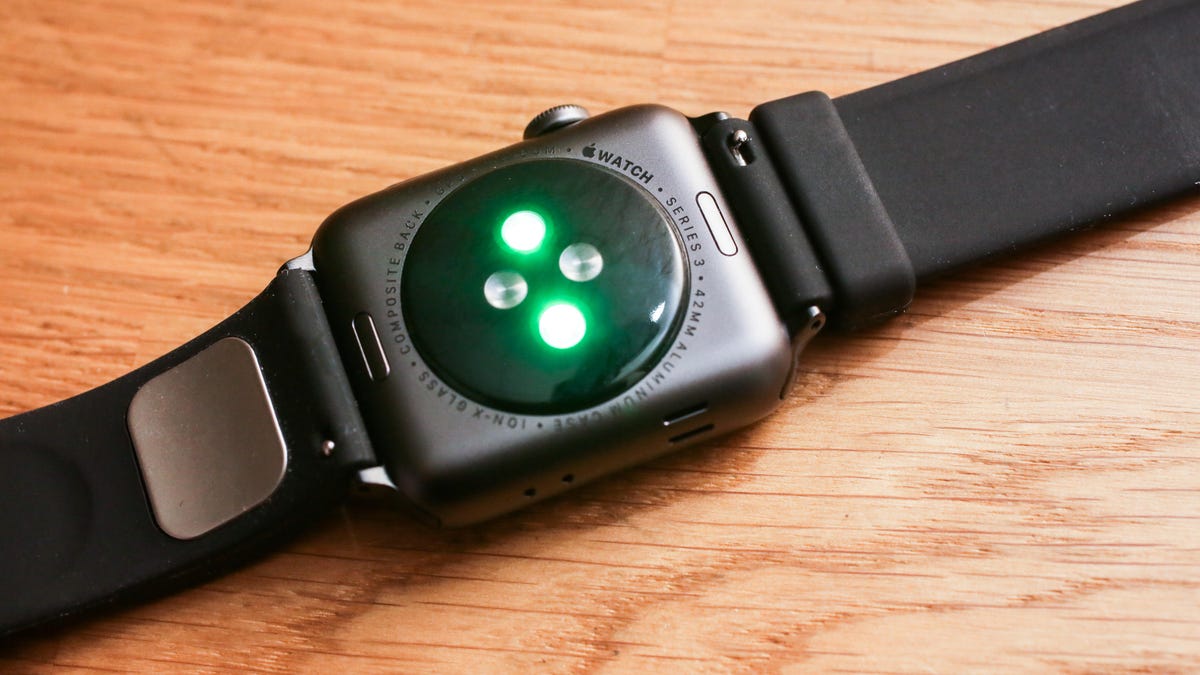The new FDA-cleared Apple Watch band adds real-time EKG
The KardiaBand aims to track atrial fibrillation, something that fitness tracker heart rate monitors aren't approved to test (yet).

The Kardia Band is a strap with an extra electrode sensor for measuring EKGs with your finger.
The Apple Watch already has a heart rate sensor, and it can even help flag potentially dangerous cardiac conditions. Apple is working on having the heart rate sensor check for heart rhythm abnormalities (atrial fibrillation), and has just launched a heart rate study with Stanford that anyone can opt into and test. But there is a new strap for the Apple Watch that does have FDA clearance right now.
AliveCor's KardiaBand is an FDA-cleared device that checks on-the-spot EKG readings in a Bluetooth-connected strap. Unlike the Apple Watch's optical heart rate technology, the KardiaBand uses your finger or thumb to complete an electrical circuit via two metal contacts: one for your finger, one that rests against your wrist. It works with Apple Watch Series 1 , 2 and 3 models -- that is, every version except the original "Series Zero" model.
The spot EKG reading takes 30 seconds and is designed to measure when stationary, not active. AliveCor's Kardia app tracks heart rate continuously with the Apple Watch's sensors and then pings you to take an extra EKG reading when your heart rate seems out of place with where your activity and previous history would indicate, using what AliveCor says is AI that learns over time.
Taking a reading with the KardiaBand. The EKG appears on the watch screen, or on the iPhone.
EKG readings can be stored in-app, imported into Apple Health, or sent to your doctor. The $200 band also requires a $99-a-year subscription service to use the app's sharing features, cloud storage, and incorporation of weight and blood pressure measurements. For an additional fee, AliveCor exports results for analysis by either a "Cardiac Technician" ($9, 1 hour turnaround) or a "US Board Certified Cardiologist" ($19, 24 hours).
The app requires an extra yearly subscription service.
The band seemed to drain the Apple Watch battery faster than usual (it uses always-on heart rate by default). And AliveCor makes a less expensive $99 standalone device, the Kardia Mobile (which I haven't tested) that does something similar. But the advantage of the Apple Watch-connected KardiaBand is that it can make EKG readings completely on its own, away from an iPhone and even offline. For those who need an on-the-spot more accurate heart rate measurement for medical purposes, this could be an interesting option. My handful of initial attempts said my EKGs were "normal."
Medically sanctioned heart rate accessories for fitness trackers and smartwatches aren't common yet, but they may be on the rise in the year to come. And, eventually, fitness trackers might be cleared for medically accurate heart rate on their own. For now, the KardiaBand is a bridge to where heart rate on health wearables could go next.
Correction, 8:26 a.m.: A previous version of this story said the KardiaBand is FDA approved. It is FDA cleared, meaning the US Food and Drug Administration has "determined [it] to be substantially equivalent to another legally marketed device."

